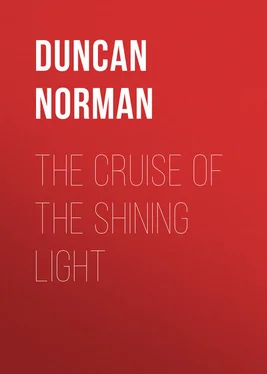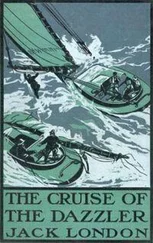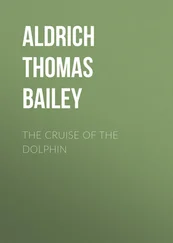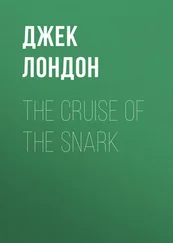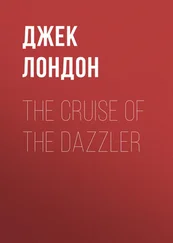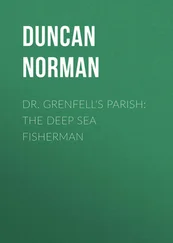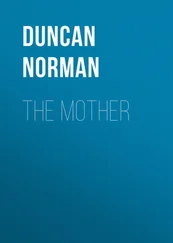“Dannie,” she ventured, softly, “you’re able t’ take it.”
“Ay–but will not.”
“You’re wonderful strong, Dannie, an’ I’m but a maid.”
“I’ll wrest no kisses,” said I, with a twitch of scorn, “from maids.”
She smiled. ’Twas a passing burst of rapture, which, vanishing, left her wan and aged beyond her years.
“No,” she whispered, but not to me, “he’d not do that. He’d not–do that! An’ I’d care little enough for the Dannie Callaway that would.”
“You cares little enough as ’tis,” said I. “You cares nothing at all. You cares not a jot.”
She smiled again: but now as a wilful, flirting maid. “As for carin’ for you , Dannie,” she mused, dissembling candor, “I do – an’ I don’t.”
The unholy spell that a maid may weave! The shameless trickery of this!
“I’ll tell you,” she added, “the morrow.”
And she would keep me in torture!
“There’ll be no to-morrow for we,” I flashed, in a passion. “You cares nothing for Dannie Callaway. ’Tis my foot,” I cried, stamping in rage and resentment. “’Tis my twisted foot. I’m nothin’ but a cripple!”
She cried out at this.
“A limpin’ cripple,” I groaned, “t’ be laughed at by all the maids o’ Twist Tickle!”
She began now softly to weep. I moved towards the ladder–with the will to abandon her.
“Dannie,” she called, “take the kiss.”
I would not.
“Take two,” she begged.
“Maid,” said I, severely, “what about your God?”
“Ah, but –” she began.
“No, no!” cries I. “None o’ that, now!”
“You’ll not listen!” she pouted.
“’Twill never do, maid!”
“An you’d but hear me, child,” she complained, “I’d ’splain–”
“ What about your God? ”
She turned demure–all in a flash. “I’ll ask Un,” said she, most piously. “You–you–you’ll not run off, Dannie,” she asked, faintly, “when I–I–shuts my eyes?”
“I’ll bide here,” says I.
“Then,” says she, “I’ll ask Un.”
The which she did, in her peculiar way. ’Twas a ceremony scandalously brief and hurried. Once I caught (I thought) a slit in her eye–a peep-hole through which she spied upon me. Presently she looked up with a shy little grin. “God says, Dannie,” she reported, speaking with slow precision, the grin now giving place to an expression of solemnity and highest rapture, “that He ’lows He didn’t know what a fuss you’d make about a little thing like a kiss. He’ve been wonderful bothered o’ late by overwork, Dannie, an’ He’s sorry for what He done, an’ ’lows you might overlook it this time. ‘You tell Dannie, Judy,’ says He, ‘that he’ve simply no idea what a God like me haves t’ put up with. They’s a woman t’ Thunder Arm,’ says He, ‘that’s been worryin’ me night an’ day t’ keep her baby from dyin’, an’ I simply can’t make up my mind. She’ll make me mad an she doesn’t look out,’ says He, ‘an’ then I’ll kill it. An’ I’ve the heathen, Judy–all them heathen–on my mind. ’Tis enough t’ drive any God mad. An’ jus’ now,’ says He, ‘I’ve got a wonderful big gale blowin’ on the Labrador, an’ I’m near drove deaf,’ says He, ‘by the noise them fishermen is makin’. What with the Labradormen an’ the woman t’ Thunder Arm an’ the heathen ’tis fair awful. An’ now comes Dannie,’ says He, ‘t’ make me sick o’ my berth! You tell Dannie,’ says he, ‘t’ take the kiss an’ be done with it. Tell un t’ go ahead,’ says He, ‘an’ not be afeared o’ me. I isn’t in favor o’ kissin’ as a usual thing,’ says He, ‘for I’ve always ’lowed ’twas sort o’ silly; but if you
Конец ознакомительного фрагмента.
Текст предоставлен ООО «ЛитРес».
Прочитайте эту книгу целиком, купив полную легальную версию на ЛитРес.
Безопасно оплатить книгу можно банковской картой Visa, MasterCard, Maestro, со счета мобильного телефона, с платежного терминала, в салоне МТС или Связной, через PayPal, WebMoney, Яндекс.Деньги, QIWI Кошелек, бонусными картами или другим удобным Вам способом.
’Twas really “damned t’ port an’ weather” my uncle would have me say; but I hesitate to set it down, lest the more gentle readers of my simple narrative think ill of the man’s dealings with a child, which I would not have them do.
Of course, the frequent recurrence of this vulgarity in my narrative is to be regretted. No one, indeed, is more sensible of the circumstance than I. My uncle held the word in affectionate regard, and usefully employed it: ’tis the only apology I have to offer. Would it not be possible for the more delicate readers of my otherwise inoffensive narrative to elide the word? or to supply, on the spur of the moment, an acceptable equivalent, of which, I am told, there is an infinite variety? or (better still) to utter it courageously? I am for the bolder course: ’tis a discipline rich in cultural advantages. But ’tis for the reader, of course, to choose the alternative.
My uncle would instantly have thrashed me had I approached an oath (or any other vulgarity) in conversation upon ordinary occasions.
I am informed that there are strange folk who do not visualize after the manner of Judith and me. ’Tis a wonder how they conceive, at all!
